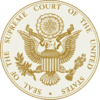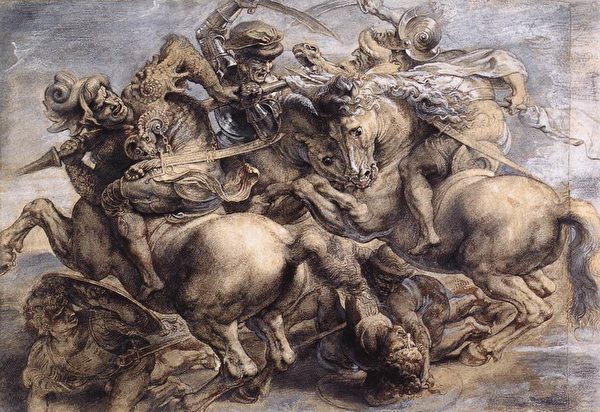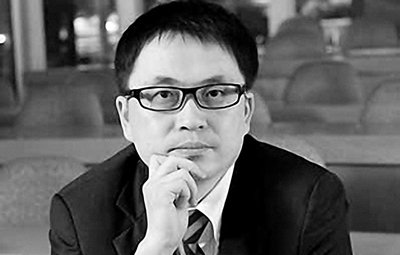![Printer-Friendly Version]()
The Constitution of the United States: A Transcription
Note: The
following text is a transcription of the Constitution as it was
inscribed by Jacob Shallus on parchment (the document on display in
the Rotunda at the National Archives Museum.) Items that are
hyperlinked have since been amended or superseded.
The authenticated
text of the Constitution can be found on the
website of the Government Printing Office.
We the People of the United
States, in Order to form a more perfect Union, establish Justice,
insure domestic Tranquility, provide for the common defence,
promote the general Welfare, and secure the Blessings of Liberty to
ourselves and our Posterity, do ordain and establish this
Constitution for the United States of America.
Article. I.
Section. 1.
All legislative Powers herein granted shall be vested
in a Congress of the United States, which shall consist of a Senate
and House of Representatives.
Section. 2.
The House of Representatives shall be composed of
Members chosen every second Year by the People of the several
States, and the Electors in each State shall have the
Qualifications requisite for Electors of the most numerous Branch
of the State Legislature.
No Person shall be a Representative who shall not have
attained to the Age of twenty five Years, and been seven Years a
Citizen of the United States, and who shall not, when elected, be
an Inhabitant of that State in which he shall be chosen.
Representatives
and direct Taxes shall be apportioned among the several States
which may be included within this Union, according to their
respective Numbers, which shall be determined by adding to the
whole Number of free Persons, including those bound to Service for
a Term of Years, and excluding Indians not taxed, three fifths of
all other Persons. The actual Enumeration shall be made within
three Years after the first Meeting of the Congress of the United
States, and within every subsequent Term of ten Years, in such
Manner as they shall by Law direct. The Number of Representatives
shall not exceed one for every thirty Thousand, but each State
shall have at Least one Representative; and until such enumeration
shall be made, the State of New Hampshire shall be entitled to
chuse three, Massachusetts eight, Rhode-Island and Providence
Plantations one, Connecticut five, New-York six, New Jersey four,
Pennsylvania eight, Delaware one, Maryland six, Virginia ten, North
Carolina five, South Carolina five, and Georgia three.
When vacancies happen in the Representation from any
State, the Executive Authority thereof shall issue Writs of
Election to fill such Vacancies.
The House of Representatives shall chuse their Speaker
and other Officers; and shall have the sole Power of
Impeachment.
Section. 3.
The Senate of the United States shall be composed of
two Senators from each State, chosen
by the Legislaturethereof, for six Years; and each Senator
shall have one Vote.
Immediately after they shall be assembled in
Consequence of the first Election, they shall be divided as equally
as may be into three Classes. The Seats of the Senators of the
first Class shall be vacated at the Expiration of the second Year,
of the second Class at the Expiration of the fourth Year, and of
the third Class at the Expiration of the sixth Year, so that one
third may be chosen every second Year; and
if Vacancies happen by Resignation, or otherwise, during the Recess
of the Legislature of any State, the Executive thereof may make
temporary Appointments until the next Meeting of the Legislature,
which shall then fill such Vacancies.
No Person shall be a Senator who shall not have
attained to the Age of thirty Years, and been nine Years a Citizen
of the United States, and who shall not, when elected, be an
Inhabitant of that State for which he shall be chosen.
The Vice President of the United States shall be
President of the Senate, but shall have no Vote, unless they be
equally divided.
The Senate shall chuse their other Officers, and also a
President pro tempore, in the Absence of the Vice President, or
when he shall exercise the Office of President of the United
States.
The Senate shall have the sole Power to try all
Impeachments. When sitting for that Purpose, they shall be on Oath
or Affirmation. When the President of the United States is tried,
the Chief Justice shall preside: And no Person shall be convicted
without the Concurrence of two thirds of the Members present.
Judgment in Cases of Impeachment shall not extend
further than to removal from Office, and disqualification to hold
and enjoy any Office of honor, Trust or Profit under the United
States: but the Party convicted shall nevertheless be liable and
subject to Indictment, Trial, Judgment and Punishment, according to
Law.
Section. 4.
The Times, Places and Manner of holding Elections for
Senators and Representatives, shall be prescribed in each State by
the Legislature thereof; but the Congress may at any time by Law
make or alter such Regulations, except as to the Places of chusing
Senators.
The Congress shall assemble at least once in every
Year, and such Meeting shall be
on the first Monday in December, unless they shall by Law
appoint a different Day.
Section. 5.
Each House shall be the Judge of the Elections, Returns
and Qualifications of its own Members, and a Majority of each shall
constitute a Quorum to do Business; but a smaller Number may
adjourn from day to day, and may be authorized to compel the
Attendance of absent Members, in such Manner, and under such
Penalties as each House may provide.
Each House may determine the Rules of its Proceedings,
punish its Members for disorderly Behaviour, and, with the
Concurrence of two thirds, expel a Member.
Each House shall keep a Journal of its Proceedings, and
from time to time publish the same, excepting such Parts as may in
their Judgment require Secrecy; and the Yeas and Nays of the
Members of either House on any question shall, at the Desire of one
fifth of those Present, be entered on the Journal.
Neither House, during the Session of Congress, shall,
without the Consent of the other, adjourn for more than three days,
nor to any other Place than that in which the two Houses shall be
sitting.
Section. 6.
The Senators and Representatives shall receive a
Compensation for their Services, to be ascertained by Law, and paid
out of the Treasury of the United States. They shall in all Cases,
except Treason, Felony and Breach of the Peace, be privileged from
Arrest during their Attendance at the Session of their respective
Houses, and in going to and returning from the same; and for any
Speech or Debate in either House, they shall not be questioned in
any other Place.
No Senator or Representative shall, during the Time for
which he was elected, be appointed to any civil Office under the
Authority of the United States, which shall have been created, or
the Emoluments whereof shall have been encreased during such time;
and no Person holding any Office under the United States, shall be
a Member of either House during his Continuance in Office.
Section. 7.
All Bills for raising Revenue shall originate in the
House of Representatives; but the Senate may propose or concur with
Amendments as on other Bills.
Every Bill which shall have passed the House of
Representatives and the Senate, shall, before it become a Law, be
presented to the President of the United States; If he approve he
shall sign it, but if not he shall return it, with his Objections
to that House in which it shall have originated, who shall enter
the Objections at large on their Journal, and proceed to reconsider
it. If after such Reconsideration two thirds of that House shall
agree to pass the Bill, it shall be sent, together with the
Objections, to the other House, by which it shall likewise be
reconsidered, and if approved by two thirds of that House, it shall
become a Law. But in all such Cases the Votes of both Houses shall
be determined by yeas and Nays, and the Names of the Persons voting
for and against the Bill shall be entered on the Journal of each
House respectively. If any Bill shall not be returned by the
President within ten Days (Sundays excepted) after it shall have
been presented to him, the Same shall be a Law, in like Manner as
if he had signed it, unless the Congress by their Adjournment
prevent its Return, in which Case it shall not be a Law.
Every Order, Resolution, or Vote to which the
Concurrence of the Senate and House of Representatives may be
necessary (except on a question of Adjournment) shall be presented
to the President of the United States; and before the Same shall
take Effect, shall be approved by him, or being disapproved by him,
shall be repassed by two thirds of the Senate and House of
Representatives, according to the Rules and Limitations prescribed
in the Case of a Bill.
Section. 8.
The Congress shall have Power To lay and collect Taxes,
Duties, Imposts and Excises, to pay the Debts and provide for the
common Defence and general Welfare of the United States; but all
Duties, Imposts and Excises shall be uniform throughout the United
States;
To borrow Money on the credit of the United States;
To regulate Commerce with foreign Nations, and among
the several States, and with the Indian Tribes;
To establish an uniform Rule of Naturalization, and
uniform Laws on the subject of Bankruptcies throughout the United
States;
To coin Money, regulate the Value thereof, and of
foreign Coin, and fix the Standard of Weights and Measures;
To provide for the Punishment of counterfeiting the
Securities and current Coin of the United States;
To establish Post Offices and post Roads;
To promote the Progress of Science and useful Arts, by
securing for limited Times to Authors and Inventors the exclusive
Right to their respective Writings and Discoveries;
To constitute Tribunals inferior to the supreme
Court;
To define and punish Piracies and Felonies committed
on the high Seas, and Offences against the Law of Nations;
To declare War, grant Letters of Marque and Reprisal,
and make Rules concerning Captures on Land and Water;
To raise and support Armies, but no Appropriation of
Money to that Use shall be for a longer Term than two Years;
To provide and maintain a Navy;
To make Rules for the Government and Regulation of the
land and naval Forces;
To provide for calling forth the Militia to execute
the Laws of the Union, suppress Insurrections and repel
Invasions;
To provide for organizing, arming, and disciplining,
the Militia, and for governing such Part of them as may be employed
in the Service of the United States, reserving to the States
respectively, the Appointment of the Officers, and the Authority of
training the Militia according to the discipline prescribed by
Congress;
To exercise exclusive Legislation in all Cases
whatsoever, over such District (not exceeding ten Miles square) as
may, by Cession of particular States, and the Acceptance of
Congress, become the Seat of the Government of the United States,
and to exercise like Authority over all Places purchased by the
Consent of the Legislature of the State in which the Same shall be,
for the Erection of Forts, Magazines, Arsenals, dock-Yards, and
other needful Buildings;—And
To make all Laws which shall be necessary and proper
for carrying into Execution the foregoing Powers, and all other
Powers vested by this Constitution in the Government of the United
States, or in any Department or Officer thereof.
Section. 9.
The Migration or Importation of such Persons as any of
the States now existing shall think proper to admit, shall not be
prohibited by the Congress prior to the Year one thousand eight
hundred and eight, but a Tax or duty may be imposed on such
Importation, not exceeding ten dollars for each Person.
The Privilege of the Writ of Habeas Corpus shall not be
suspended, unless when in Cases of Rebellion or Invasion the public
Safety may require it.
No Bill of Attainder or ex post facto Law shall be
passed.
No Capitation, or other direct, Tax shall be
laid, unless
in Proportion to the Census or enumeration herein before directed
to be taken.
No Tax or Duty shall be laid on Articles exported from
any State.
No Preference shall be given by any Regulation of
Commerce or Revenue to the Ports of one State over those of
another: nor shall Vessels bound to, or from, one State, be obliged
to enter, clear, or pay Duties in another.
No Money shall be drawn from the Treasury, but in
Consequence of Appropriations made by Law; and a regular Statement
and Account of the Receipts and Expenditures of all public Money
shall be published from time to time.
No Title of Nobility shall be granted by the United
States: And no Person holding any Office of Profit or Trust under
them, shall, without the Consent of the Congress, accept of any
present, Emolument, Office, or Title, of any kind whatever, from
any King, Prince, or foreign State.
Section. 10.
No State shall enter into any Treaty, Alliance, or
Confederation; grant Letters of Marque and Reprisal; coin Money;
emit Bills of Credit; make any Thing but gold and silver Coin a
Tender in Payment of Debts; pass any Bill of Attainder, ex post
facto Law, or Law impairing the Obligation of Contracts, or grant
any Title of Nobility.
No State shall, without the Consent of the Congress,
lay any Imposts or Duties on Imports or Exports, except what may be
absolutely necessary for executing it's inspection Laws: and the
net Produce of all Duties and Imposts, laid by any State on Imports
or Exports, shall be for the Use of the Treasury of the United
States; and all such Laws shall be subject to the Revision and
Controul of the Congress.
No State shall, without the Consent of Congress, lay
any Duty of Tonnage, keep Troops, or Ships of War in time of Peace,
enter into any Agreement or Compact with another State, or with a
foreign Power, or engage in War, unless actually invaded, or in
such imminent Danger as will not admit of delay.
Article. II.
Section. 1.
The executive Power shall be vested in a President of
the United States of America. He shall hold his Office during the
Term of four Years, and, together with the Vice President, chosen
for the same Term, be elected, as follows
Each State shall appoint, in such Manner as the
Legislature thereof may direct, a Number of Electors, equal to the
whole Number of Senators and Representatives to which the State may
be entitled in the Congress: but no Senator or Representative, or
Person holding an Office of Trust or Profit under the United
States, shall be appointed an Elector.
The
Electors shall meet in their respective States, and vote by Ballot
for two Persons, of whom one at least shall not be an Inhabitant of
the same State with themselves. And they shall make a List of all
the Persons voted for, and of the Number of Votes for each; which
List they shall sign and certify, and transmit sealed to the Seat
of the Government of the United States, directed to the President
of the Senate. The President of the Senate shall, in the Presence
of the Senate and House of Representatives, open all the
Certificates, and the Votes shall then be counted. The Person
having the greatest Number of Votes shall be the President, if such
Number be a Majority of the whole Number of Electors appointed; and
if there be more than one who have such Majority, and have an equal
Number of Votes, then the House of Representatives shall
immediately chuse by Ballot one of them for President; and if no
Person have a Majority, then from the five highest on the List the
said House shall in like Manner chuse the President. But in chusing
the President, the Votes shall be taken by States, the
Representation from each State having one Vote; A quorum for this
Purpose shall consist of a Member or Members from two thirds of the
States, and a Majority of all the States shall be necessary to a
Choice. In every Case, after the Choice of the President, the
Person having the greatest Number of Votes of the Electors shall be
the Vice President. But if there should remain two or more who have
equal Votes, the Senate shall chuse from them by Ballot the Vice
President.
The Congress may determine the Time of chusing the
Electors, and the Day on which they shall give their Votes; which
Day shall be the same throughout the United States.
No Person except a natural born Citizen, or a Citizen
of the United States, at the time of the Adoption of this
Constitution, shall be eligible to the Office of President; neither
shall any Person be eligible to that Office who shall not have
attained to the Age of thirty five Years, and been fourteen Years a
Resident within the United States.
In
Case of the Removal of the President from Office, or of his Death,
Resignation, or Inability to discharge the Powers and Duties of the
said Office, the Same shall devolve on the Vice President, and the
Congress may by Law provide for the Case of Removal, Death,
Resignation or Inability, both of the President and Vice President,
declaring what Officer shall then act as President, and such
Officer shall act accordingly, until the Disability be removed, or
a President shall be elected.
The President shall, at stated Times, receive for his
Services, a Compensation, which shall neither be encreased nor
diminished during the Period for which he shall have been elected,
and he shall not receive within that Period any other Emolument
from the United States, or any of them.
Before he enter on the Execution of his Office, he
shall take the following Oath or Affirmation:—"I do solemnly swear
(or affirm) that I will faithfully execute the Office of President
of the United States, and will to the best of my Ability, preserve,
protect and defend the Constitution of the United States."
Section. 2.
The President shall be Commander in Chief of the Army
and Navy of the United States, and of the Militia of the several
States, when called into the actual Service of the United States;
he may require the Opinion, in writing, of the principal Officer in
each of the executive Departments, upon any Subject relating to the
Duties of their respective Offices, and he shall have Power to
grant Reprieves and Pardons for Offences against the United States,
except in Cases of Impeachment.
He shall have Power, by and with the Advice and Consent
of the Senate, to make Treaties, provided two thirds of the
Senators present concur; and he shall nominate, and by and with the
Advice and Consent of the Senate, shall appoint Ambassadors, other
public Ministers and Consuls, Judges of the supreme Court, and all
other Officers of the United States, whose Appointments are not
herein otherwise provided for, and which shall be established by
Law: but the Congress may by Law vest the Appointment of such
inferior Officers, as they think proper, in the President alone, in
the Courts of Law, or in the Heads of Departments.
The President shall have Power to fill up all Vacancies
that may happen during the Recess of the Senate, by granting
Commissions which shall expire at the End of their next
Session.
Section. 3.
He shall from time to time give to the Congress
Information of the State of the Union, and recommend to their
Consideration such Measures as he shall judge necessary and
expedient; he may, on extraordinary Occasions, convene both Houses,
or either of them, and in Case of Disagreement between them, with
Respect to the Time of Adjournment, he may adjourn them to such
Time as he shall think proper; he shall receive Ambassadors and
other public Ministers; he shall take Care that the Laws be
faithfully executed, and shall Commission all the Officers of the
United States.
Section. 4.
The President, Vice President and all civil Officers of
the United States, shall be removed from Office on Impeachment for,
and Conviction of, Treason, Bribery, or other high Crimes and
Misdemeanors.
Article III.
Section. 1.
The judicial Power of the United States, shall be
vested in one supreme Court, and in such inferior Courts as the
Congress may from time to time ordain and establish. The Judges,
both of the supreme and inferior Courts, shall hold their Offices
during good Behaviour, and shall, at stated Times, receive for
their Services, a Compensation, which shall not be diminished
during their Continuance in Office.
Section. 2.
The judicial Power shall extend to all Cases, in Law
and Equity, arising under this Constitution, the Laws of the United
States, and Treaties made, or which shall be made, under their
Authority;—to all Cases affecting Ambassadors, other public
Ministers and Consuls;—to all Cases of admiralty and maritime
Jurisdiction;—to Controversies to which the United States shall be
a Party;—to Controversies between two or more
States;— between
a State and Citizens of another State,—between Citizens of
different States,—between Citizens of the same State claiming Lands
under Grants of different States, and between a State, or the
Citizens thereof, and foreign States, Citizens or Subjects.
In all Cases affecting Ambassadors, other public
Ministers and Consuls, and those in which a State shall be Party,
the supreme Court shall have original Jurisdiction. In all the
other Cases before mentioned, the supreme Court shall have
appellate Jurisdiction, both as to Law and Fact, with such
Exceptions, and under such Regulations as the Congress shall
make.
The Trial of all Crimes, except in Cases of
Impeachment, shall be by Jury; and such Trial shall be held in the
State where the said Crimes shall have been committed; but when not
committed within any State, the Trial shall be at such Place or
Places as the Congress may by Law have directed.
Section. 3.
Treason against the United States, shall consist only
in levying War against them, or in adhering to their Enemies,
giving them Aid and Comfort. No Person shall be convicted of
Treason unless on the Testimony of two Witnesses to the same overt
Act, or on Confession in open Court.
The Congress shall have Power to declare the Punishment
of Treason, but no Attainder of Treason shall work Corruption of
Blood, or Forfeiture except during the Life of the Person
attainted.
Article. IV.
Section. 1.
Full Faith and Credit shall be given in each State to
the public Acts, Records, and judicial Proceedings of every other
State. And the Congress may by general Laws prescribe the Manner in
which such Acts, Records and Proceedings shall be proved, and the
Effect thereof.
Section. 2.
The Citizens of each State shall be entitled to all
Privileges and Immunities of Citizens in the several States.
A Person charged in any State with Treason, Felony, or
other Crime, who shall flee from Justice, and be found in another
State, shall on Demand of the executive Authority of the State from
which he fled, be delivered up, to be removed to the State having
Jurisdiction of the Crime.
No
Person held to Service or Labour in one State, under the Laws
thereof, escaping into another, shall, in Consequence of any Law or
Regulation therein, be discharged from such Service or Labour, but
shall be delivered up on Claim of the Party to whom such Service or
Labour may be due.
Section. 3.
New States may be admitted by the Congress into this
Union; but no new State shall be formed or erected within the
Jurisdiction of any other State; nor any State be formed by the
Junction of two or more States, or Parts of States, without the
Consent of the Legislatures of the States concerned as well as of
the Congress.
The Congress shall have Power to dispose of and make
all needful Rules and Regulations respecting the Territory or other
Property belonging to the United States; and nothing in this
Constitution shall be so construed as to Prejudice any Claims of
the United States, or of any particular State.
Section. 4.
The United States shall guarantee to every State in
this Union a Republican Form of Government, and shall protect each
of them against Invasion; and on Application of the Legislature, or
of the Executive (when the Legislature cannot be convened), against
domestic Violence.
Article. V.
The Congress, whenever two thirds of both Houses shall
deem it necessary, shall propose Amendments to this Constitution,
or, on the Application of the Legislatures of two thirds of the
several States, shall call a Convention for proposing Amendments,
which, in either Case, shall be valid to all Intents and Purposes,
as Part of this Constitution, when ratified by the Legislatures of
three fourths of the several States, or by Conventions in three
fourths thereof, as the one or the other Mode of Ratification may
be proposed by the Congress; Provided that no Amendment which may
be made prior to the Year One thousand eight hundred and eight
shall in any Manner affect the first and fourth Clauses in the
Ninth Section of the first Article; and that no State, without its
Consent, shall be deprived of its equal Suffrage in the Senate.
Article. VI.
All Debts contracted and Engagements entered into,
before the Adoption of this Constitution, shall be as valid against
the United States under this Constitution, as under the
Confederation.
This Constitution, and the Laws of the United States
which shall be made in Pursuance thereof; and all Treaties made, or
which shall be made, under the Authority of the United States,
shall be the supreme Law of the Land; and the Judges in every State
shall be bound thereby, any Thing in the Constitution or Laws of
any State to the Contrary notwithstanding.
The Senators and Representatives before mentioned, and
the Members of the several State Legislatures, and all executive
and judicial Officers, both of the United States and of the several
States, shall be bound by Oath or Affirmation, to support this
Constitution; but no religious Test shall ever be required as a
Qualification to any Office or public Trust under the United
States.
Article. VII.
The Ratification of the Conventions of nine States,
shall be sufficient for the Establishment of this Constitution
between the States so ratifying the Same.
The Word, "the,"
being interlined between the seventh and eighth Lines of the first
Page, The Word "Thirty" being partly written on an Erazure in the
fifteenth Line of the first Page, The Words "is tried" being
interlined between the thirty second and thirty third Lines of the
first Page and the Word "the" being interlined between the forty
third and forty fourth Lines of the second Page.
Attest William
Jackson Secretary
done in Convention
by the Unanimous Consent of the States present the Seventeenth Day
of September in the Year of our Lord one thousand seven hundred and
Eighty seven and of the Independance of the United States of
America the Twelfth In witness whereof We have hereunto subscribed
our Names,
G°.
Washington
Presidt and deputy from Virginia
Delaware
Geo: Read
Gunning Bedford jun
John Dickinson
Richard Bassett
Jaco: Broom
Maryland
James McHenry
Dan of St Thos. Jenifer
Danl. Carroll
Virginia
John Blair
James Madison Jr.
North Carolina
Wm. Blount
Richd. Dobbs Spaight
Hu Williamson
South Carolina
J. Rutledge
Charles Cotesworth Pinckney
Charles Pinckney
Pierce Butler
Georgia
William Few
Abr Baldwin
New Hampshire
John Langdon
Nicholas Gilman
Massachusetts
Nathaniel Gorham
Rufus King
Connecticut
Wm. Saml. Johnson
Roger Sherman
New York
Alexander Hamilton
New Jersey
Wil: Livingston
David Brearley
Wm. Paterson
Jona: Dayton
Pensylvania
B Franklin
Thomas Mifflin
Robt. Morris
Geo. Clymer
Thos. FitzSimons
Jared Ingersoll
James Wilson
Gouv Morris
For biographies of
the non-signing delegates to the Constitutional
Convention,
see the Founding
Fathers page.
|




































